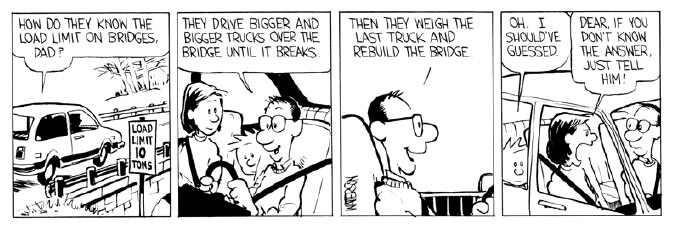In case you were worried you might get in trouble for stating your engineering opinions:
spsalso
spsalso
Follow along with the video below to see how to install our site as a web app on your home screen.
Note: This feature may not be available in some browsers.
Nutt vs Ritter said:This matter comes before the court on the parties' cross-motions for summary judgment [DE 42, 46]. Plaintiff Wayne Nutt ("Nutt") seeks summary judgment as to his claim for a declaration that certain provisions of the North Carolina Engineering and Land Surveying Act (the "Act"), as interpreted and enforced, violate the First Amendment as applied to expert testimony.
He also seeks a permanent injunction allowing him and others similarly situated to testify on engineering matters without a license. Defendants Andrew Ritter and other members of the North Carolina Board of Examiners for Engineers and Surveyors (collectively, the "Board") disavow the notion that the Board has targeted or will target expert testimony under the Act.
Rather, the Board seeks a counter-declaration that Nutt' s expert reports submitted on behalf of a group of plaintiffs in a state lawsuit violates the Act' s prohibition against the unlicensed practice of engineering. Whereas Nutt seeks to protect engineering speech, the Board seeks to prohibit the work underlying that speech. For the following reasons, the court grants in part and denies in part Nutt' s motion and denies in toto the Board's motion. . . .
Opposing counsel in the Autry litigation suggested that his testimony about the fluid-flow capacity of the diverter would constitute the unauthorized practice of engineering under the relevant statutory authority.
Counsel for the Autry litigation plaintiffs (Kyle Nutt) contacted the Board about the opposing counsel's apparent accusation. Nutt then received several correspondences from the Board regarding his inability to testify in the Autry litigation without a license.
The Board sent an email, explaining that an unlicensed individual cannot publicly use the term "engineer" in their descriptive title or offer testimony likely to be perceived by the public as "engineering advice." Email from David Tuttle to Kyle Nutt (Mar. 8, 2021), DE 49-29.
The Board also provided a position statement-the focus of Nutt's claim - warning that "testimony impacting the public," including "expert witness testimony on engineering ... matters in the courtroom ... or during depositions" and testimony based on "engineering education, training or experience," requires licensing. Position Stmt., DE 1-2 at 1. The statement also indicated that expert reports are also "evidence of the practice of the profession." Id. The Board stated that it "has proceeded against unlicensed individuals ... for the unlicensed practice of engineering." Id.
The Board believes it must protect the public from incompetent engineers, dangerous public works and systems, and engineering misrepresentations.
For the foregoing reasons, the court GRANTS in part and DENIES in part Nutt's motion for summary judgment [DE 46]. The court DENIES the Board's motion for summary judgment [DE 42]. The court will issue a judgment in conformance with this opinion and order.
I don't understand why the opinion doesn't clearly state what "part" is being denied for Nutt.
What is some Board going to do, tell experts in the aerospace industry (none of which likely have PE’s) that we can’t testify in a public NTSB or NASA accident investigation hearing?? Riiiight.

